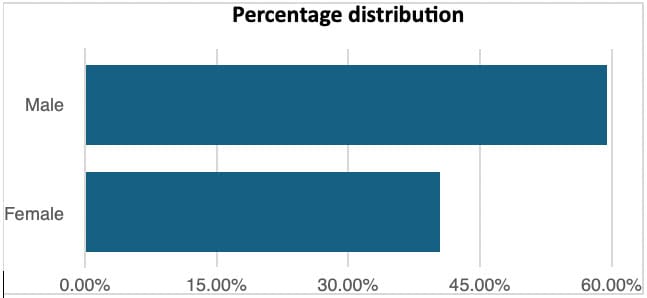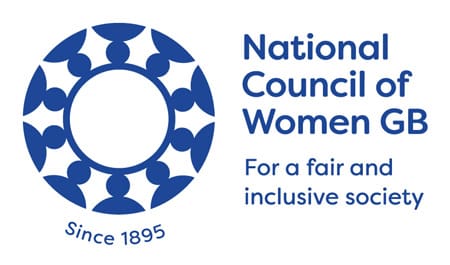A record number of women have been elected to Parliament in the 2024 election, representing another milestone in the campaign to achieve gender balance in Parliament by 2030. When the House of Commons returns, women will have 263 (41%) out of 650 seats, up from 34% at the last election. 45% of Labour MPs are women, and 24% of Conservative MPs*.


Source: House of Commons Library. * Final results will be confirmed on 12 July 2024
https://commonslibrary.parliament.uk/research-briefings/cbp-10009
NCW has a long history of campaigning for equal representation of women in political and public policy decision making. One of NCW’s earliest policy resolutions in 1920 was to call for women in Parliament: at the time, Nancy Astor was the only sitting female MP. Since then, NCW members have passed no fewer than 8 further resolutions and 3 resolution reaffirmations pushing for the equal representation of women in Parliament and public administration.
Ahead of this year’s election, NCW wrote to the Prime Minister, other party leaders, and ministers and shadow ministers for women and equalities. We thought it important to add our voice to that of other organisations urging the parties to take active steps to encourage women to stand for election and to support them through the process.
NCW has also held two relevant debates this year. The first was to celebrate the early founders of women’s activism in Britain, including those striving in their different ways to win votes for women. Historian Dr Sue Anderson-Faithful, brought to life inspirational individuals involved in the early years of the National Union of Women Workers (later known as the National Council of Women Great Britain). The second debate focused on present-day campaigning for a gender equal Parliament. Helen Pankhurst, founder of Centenary Action, and Lyanne Nicholl, CEO of 50:50 Parliament, shared what their organisations were doing to achieve an equal and representative democracy. With the debate taking place on the same day as the election, Kate Willoughby, part time actor/ part time suffragette put herself in the shoes of suffragette, Emily Wilding Davison, to remind us of the crucial importance of women making their views known through the ballot box, a right for which the suffragettes sacrificed so much.
The 2024 election has brought us closer to the goal of a gender balanced Parliament by 2030. We have few years more to campaign and supportwomen into politics to get us across the line ““ and beyond!
#LoveYourVote – Stand Up as Women Count too!
A record number of women appointed to cabinet
As the number of women in Parliament reaches an historic high, the good news doesn’t end there. A record number of women (11, or 44%) have been appointed to the cabinet and two of the “˜Great Offices of State’ are headed by women: Rachel Reeves becomes Britain’s first ever female Chancellor of the Exchequer and Yvette Cooper is Home Secretary. Angela Rayner takes the role of Deputy Prime Minister. She is said to be only the second women to hold the role. She also has an important job as Secretary of State for Levelling up, Housing and Communities, housing being a top Government priority.
Other women in high profile roles in the cabinet include Bridget Phillipson as Secretary of State for Education and Minister for Women and Equalities, Shabana Mahmood as Justice Secretary and Liz Kendall as Work and Pensions Secretary. Lisa Nandy has been promoted from her shadow cabinet role to take over at Culture, Media and Sport. Louise Haigh is Transport Secretary. At 36, she is the youngest cabinet minister of the modern era. Jo Stevens is Secretary of State for Wales, while Lucy Powell is Leader of the House of Commons and Baroness Smith of Basildon is Leader of the House of Lords.
Women have also been appointed to junior ministerial roles outside cabinet. Anneliese Dodds becomes a Minister in the Foreign, Commonwealth and Development Office and Minister for Women and Equalities in the Department for Education. A spokesman has said that she will be the lead minister on equalities. Dame Angela Eagle and Dame Diana Johnson are appointed Ministers at the Home Office. Dame Diana was Chair of the Women and Equalities Select Committee under the previous government. Jacqui Smith, who is not an MP, is being given a life peerage in order to enter the Government as Minister for Higher Education. Ms Smith held ministerial posts in the governments of Tony Blair and Gordon Brown. Ellie Reeves, the sister of Chancellor Rachel Reeves, becomes Minister without Portfolio and Chair of the Labour Party.
Also in the news, Theresa May and Harriet Harman, have been given peerages. Ms Harman is Chair of the Fawcett Society and has a longstanding commitment to gender equality. Diane Abbott becomes Mother of the House, a role given to the longest continuously serving female member of parliament. Ms Abbott was first elected in 1987, when she became the first black woman MP.
The cabinet is less ethnically diverse than Rishi Sunak’s with only 3 members from a minority ethnic background (12%), despite a record 90 minority ethnic candidates (18%) being elected to Parliament, the closest it has ever been in modern times to reflecting the UK’s diversity. The Labour Party has the highest number of minority ethnic MPs (66), followed by the Conservatives (15).
Foreign Secretary, David Lammy, is the only black member of the top team. Two secretaries of state are of Asian descent ““ Shabana Mahmood, one of the UK’s first Muslim female MPs, and Lisa Nandy. 12% of the cabinet are reported to be LGBT.
In other cabinet posts of interest to NCW, Wes Streeting is in charge of Health and Social Care. Ed Miliband will continue to cover Energy Security and Net Zero. Environment, Food and Rural Affairs has gone to Steve Reed OBE, while Science, Innovation and Technology falls to Peter Kyle.
Follow this link to read short profiles of cabinet members.

